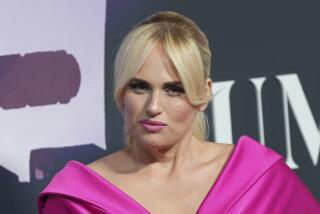Getting it out in the open
- Share via
Long before “Will & Grace,” “The L Word” and “Queer as Folk” ever existed, a writer on the 1976 sitcom “The Practice” struggled to write about a gay character. Joel Kimmel hoped his script would send an empowering message of self-respect to gay men by showing a man “coming out” to his girlfriend. The network approved the script but with one caveat -- the man would have to be ashamed of being gay.
“Don’t you think I hate myself every morning when I wake up?” the script would read after Kimmel and fellow writer Ann Gibbs took their names off the script. “Don’t you think I wish I could change?”
Decades before shows with homosexual characters were considered en vogue, gay television writers faced hostility to scripts with homosexual characters and often had to keep their private lives under wraps. Gibbs, who is a lesbian and wrote for “The Mary Tyler Moore Show” and “The Facts of Life,” said she would often change pronouns from “she” to “he” when speaking about her love life to fellow writers.
If writers were allowed to write gay characters into their scripts, she said, they would be portrayed as self-loathing, tortured souls.
“Luckily, we’ve moved past gay and lesbians as victims into the ‘Will & Grace’ kind of gays, the fun gays,” she said. “Especially in TV, there’s the commercial aspect. They are always looking for new groups to exploit, to push the envelope.”
Kimmel and Gibbs were part of a panel Thursday of gay and lesbian television and movie writers of the 1950s, ‘60s and ‘70s who appeared at the Writer’s Guild before a crowd of more than 150. Gavin Lambert, twice-nominated for best adapted screenplay Oscars, acknowledged that there was much speculation about gay writers, but for actors of that time, such as Rock Hudson, homosexuality was nothing short of career-ending.
The panelists talked about resistance they endured from network executives when faced with the prospect of an openly gay character on television. Many writers circumvented the problem by creating characters who were outrageous and eccentric without their sexuality ever being discussed. Kimmel recalled actors such as Paul Lynde on “Hollywood Squares,” who broached the subject of homosexuality innocuously through sexual innuendo.
“Why do motorcycle bikers wear leather?” Lynde was once asked on the show. “Because chiffon wrinkles,” he responded among roars of laughter from the audience.
While the panelists acknowledged large strides in acceptance of gay writers and subject matter in television in the last few decades, some feared it could spark a cultural backlash.
“I tend to be a little guarded, and I’m worried for the winds to change again,” said William Bast, who wrote for “Perry Mason” and “Dr. Kildare.” “There’s always been an environment when you just know it’s not wise to say something or do something.”
Bast said he learned how to play it safe with his homosexuality, working quietly in Hollywood and keeping “closeted” when it came to his business environment.
“Television is probably more riddled with gays than any other profession in the world,” he said in an interview after the panel. “But it was a strange time, being openly gay was still very difficult and professionally very dangerous. No one said anything to you, but you just didn’t get the job unless your script was so hot they couldn’t resist it.”
While many in the gay community see modern shows such as “Will & Grace” as promoting homosexual stereotypes, Kimmel credits the show for creating a generation of Americans who grew up expecting gay people to be portrayed on television.
But for there to be real progress for gay characters in television, Bast said, writers need to portray homosexual relationships as honest and passionate, rather than as “stunts” that make headlines, such as Roseanne’s lesbian kiss.
“It’s always still in the genre of comedy, couched in this cocoon of aren’t they fun, aren’t they silly,” he said. “Now, we’re so open it’s almost boring. It’s a strange feeling, like we aren’t special anymore.”
More to Read
The complete guide to home viewing
Get Screen Gab for everything about the TV shows and streaming movies everyone’s talking about.
You may occasionally receive promotional content from the Los Angeles Times.






